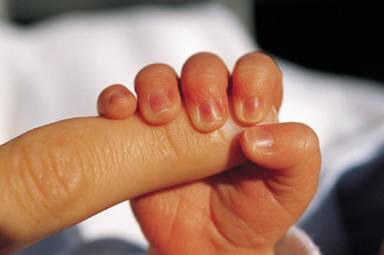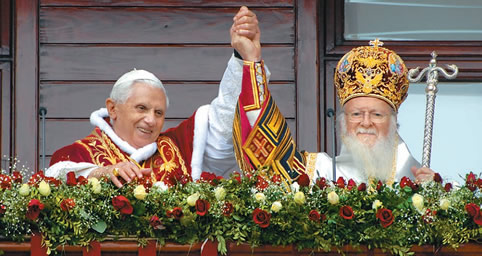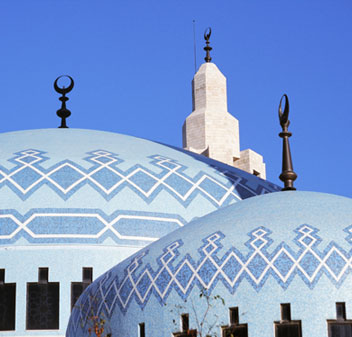Friday Frivolity: How good and lovely it is…

"We are travellers…not yet in our native land" – St. Augustine


Reception of the Holy Eucharist has recently been the subject of scrutiny in the media, prompted by some of the discussions taking place in the “Synod on the Family”. In my own life, Holy Communion was also the subject of a recent incident concerning a friend of mine.
You see, a friend recently went to a Catholic conference together with a Protestant. Being a Catholic event, there was, of course, the celebration of the Eucharist. When time for Mass came, the non-Catholic was upset that she couldn’t go up to receive the Eucharist. She couldn’t do this because, under ordinary circumstances, the Catholic Church does not allow non-Catholics to receive Holy Communion.
“…members of those churches with whom we are not yet fully united are ordinarily not admitted to Communion”
– United States Conference of Catholic Bishops, “Guidelines For communion”
In this post I would like to provide a summary of what I say when I’m asked why it is that the Catholic Church doesn’t allow anyone to receive Holy Communion (the Eastern Orthodox Churches have similar rules for similar reasons). As usual, this won’t be an exhaustive theological explanation, simply a rough outline of the kind of thing I personally say when I’m asked to explain this particular Catholic teaching.

Since yesterday began the Week of Prayer for Christian Unity…
“Yes, for me ecumenism is a priority. Today there is an ecumenism of blood. In some countries they kill Christians for wearing a cross or having a Bible and before they kill them they do not ask them whether they are Anglican, Lutheran, Catholic or Orthodox. Their blood is mixed. To those who kill we are Christians.”
“We are united in blood, even though we have not yet managed to take necessary steps towards unity between us and perhaps the time has not yet come. Unity is a gift that we need to ask for.”
“I knew a parish priest in Hamburg who was dealing with the beatification cause of a Catholic priest guillotined by the Nazis for teaching children the catechism. After him, in the list of condemned individuals, was a Lutheran pastor who was killed for the same reason. Their blood was mixed. The parish priest told me he had gone to the bishop and said to him: ‘I will continue to deal with the cause, but both of their causes, not just the Catholic priest’s.’
“This is what ecumenism of blood is. It still exists today; you just need to read the newspapers. Those who kill Christians don’t ask for your identity card to see which Church you were baptised in. We need to take these facts into consideration.”
– Pope Francis
Last month was the anniversary of Roe v Wade, the landmark abortion legislation here in the United States. In response to this, there were various pro-life events such as the March for Life in Washington DC and the Walk for Life in San Francisco.

I was over the moon to find out that there was a special event being organized here in San Diego‘s Balboa Park. The turnout was quite good, approximately 3,000 people attended and many organizations were represented.
I remember thinking how nice it was to be back around non-Catholic Christians again. In England I had a lot of contact with Christians of other denominations, both from attending non-Catholic services and from various ecumenical activities. But what with one thing and another, this hasn’t happened so much since I moved to the United States, my religious social circle being made up almost exclusively of Catholics. It was therefore really wonderful to see Christians of different denominations coming together on a Saturday morning to bear witness to the sanctity of human life.
This weekend I finished recording another document of the Church onto MP3. It is the decree on ecumenism from the Second Vatican Council, Unitatis Redintegratio.
In that vein, I’d also invite you to read the article Because our love has grown cold, written by my friend Nelson. I think his blog post points to the key thing which is needed in order for there to any meaningful ecumenical dialogue between Catholics and non-Catholics.

“My prayer is not for them alone. I pray also for those who will believe in me through their message, that all of them may be one, Father, just as you are in me and I am in you. May they also be in us so that the world may believe that you have sent me. I have given them the glory that you gave me, that they may be one as we are one — I in them and you in me—so that they may be brought to complete unity. Then the world will know that you sent me and have loved them even as you have loved me” – John 17:20-23
 Today I would like to conclude my introductory series to Islam. This series wasn’t intended to be an apologetic response to Islam, just an accurate and objective description of Islamic belief and practice. It is my hope that this will lead to a better understanding of Islam by Christians.
Today I would like to conclude my introductory series to Islam. This series wasn’t intended to be an apologetic response to Islam, just an accurate and objective description of Islamic belief and practice. It is my hope that this will lead to a better understanding of Islam by Christians.
Over the course of this series we have looked at the origins of Islam, Muhammad, the teaching of the Qur’an, as well as the faith and obligations of Muslim life. I would now like to conclude by looking at what the Catholic Church had to say about Islam at the Second Vatican Council.
The Catholic Church sets forth its binding teaching regarding Islam in the “Declaration on the Relation of the Church with Non-Christian Religions” (also known as “Nostra Aetate”, literally “In our time”):
#1 In our time, when day by day mankind is being drawn closer together, and the ties between different peoples are becoming stronger, the Church examines more closely her relationship to non-Christian religions. In her task of promoting unity and love among men, indeed among nations, she considers above all in this declaration what men have in common and what draws them to fellowship.
One is the community of all peoples, one their origin, for God made the whole human race to live over the face of the earth. One also is their final goal, God…
The church says that she sees it her task to “promote unity and love”. This unity and love is fostered by considering what unites humankind and, in this “big picture” vision of the world, we are reminded that every single person comes from God and every single one will, some day, return to Him.
#2 … The Church, therefore, exhorts her sons, that through dialogue and collaboration with the followers of other religions, carried out with prudence and love and in witness to the Christian faith and life, they recognize, preserve and promote the good things, spiritual and moral, as well as the socio-cultural values found among these men.

Below is the reflection I gave on 22nd January 2005 during the Week of Prayer for Christian Unity in response to the follow passage of Scripture:
After saying this, Jesus raised his eyes to heaven and said:
… Consecrate [those you have given me] in the truth; your word is truth….I pray not only for these but for those who through their teaching will come to believe in me.
May they all be one, just as, Father, you are in me and I am in you, so that they also may be in us, so that the world may believe it was you who sent me. I have given them the glory you gave to me, that they may be one as we are one. With me in them and you in me, may they be so perfected in unity that the world will recognise that it was you who sent me and that you have loved them as you loved me.
…. I have made your name known to them and will continue to make it known, so that the love with which you loved me may be in them, and so that I may be in them – John 17:1, 17-23, 26
This is the week of prayer for Christian unity, so I intend to speak for only a couple of minutes so we can get back to the business of prayer. I wanted to say just a few words about the reading that was chosen for tonight’s service.